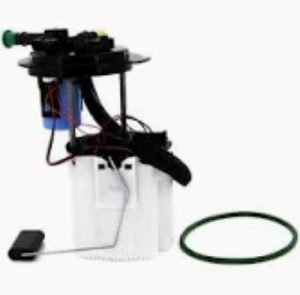A fuel pump that is leaking can be a result of various problems, all of which can affect the performance and integrity of your car. What happens most often is that the gaskets or seals will fail on the pump. This is very important as these are the components responsible for keeping a tight seal between the fuel pump and other parts of the fuel system, however they can wear or damaged over time. In turn, this causes fuel to leak and the performance of the vehicle is affected, becoming even a fire hazard. Fuel system leaks make up 6% of the 194,000 vehicle fires that happen a year according to a National Highway Traffic Safety Administration (NHTSA) report so they should not be dismissed.
Fuel pump leakage could be because of corrosion as well. This corrosion may happen with the passage of time and due to exposure of moisture, salt as well other environmental factors and in some old vehicles or those driven in harsh climates. If fuel starts leaking, it can very easily catch flames on fire. So, even if its based on the location of the car (granted they have corrosion), like in regions with high moisture levels and or road salt, Its its possible to detect any long before it starts leaking.
Broken Fuel Lines—This is another frequent issue we see with fuel pump leaks due to poor placement or the wrong lines used. Since the fuel lines runs from the pump to the engine and onward to your fuel tank, if there is a crack or wear—or they're not completely tightened—gas will leak at these connection points. According to AAA's survey, just over 5% of all fuel system leaks are caused by corroded or otherwise-damaged fuel lines, which can be punctured or severed by debris, rust and the like after years of use.

When the fuel pressure becomes high, the risk of leakage also increases. If the system pressurizes at too high a level—to levels above the 40 to 70 psi typical of most fuel-injected systems—it could potentially crack or leak, damaging either the pump and other components in the area. You would most likely want to test the fuel pressure with a gauge to see if this is causing the problem.
There is also the possibility of the fuel pump going bad. Their mechanical components can easily fail, and older pumps may develop internal cracks or deteriorated seals that cause leaks. Usually, the total cost of replacing a fuel pump ranges from $400 to $600 per vehicle make and model.
Henry Ford also had this observation, "Don't find fault, find a remedy." For a leaking fuel pump, early detection and repair can stave off worse damage or safety hazards.
To sum up, a fuel pump can leak because of seal and corrosion wear, damaged lines or excessive pressure. Following up on these areas immediately can help you to steer clear of risks is military in a position also that the vehicle maintains good overall performance. Visit Fuel Pump to learn more about fuel pump diagnosing or replacing.